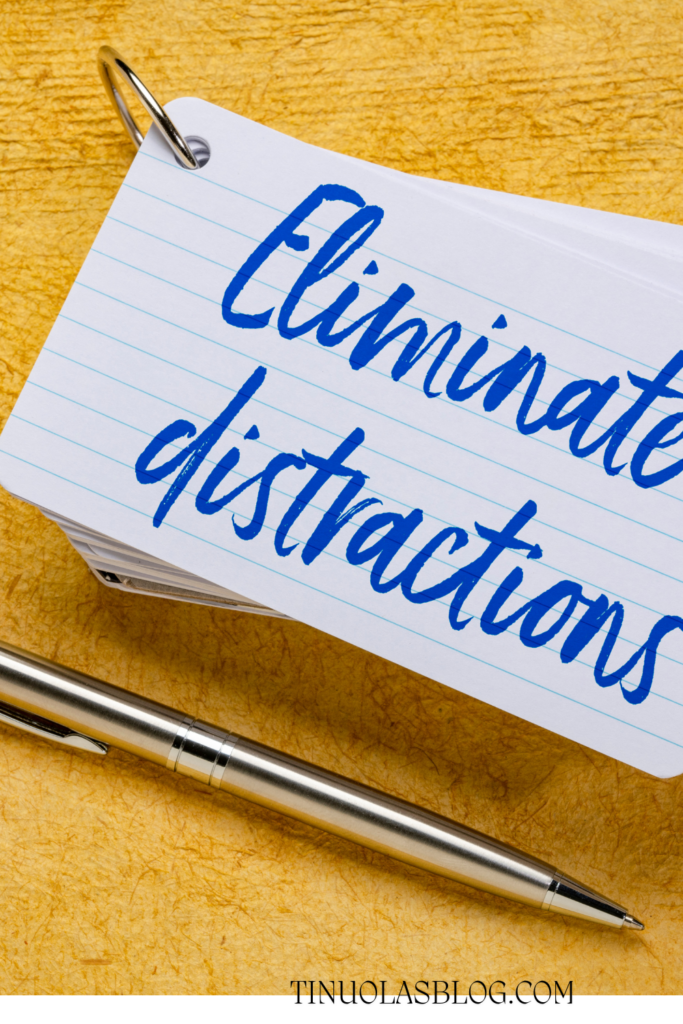If you’re lacking self-discipline, then this is one blog post you should read till the end.
One of the challenges a lot of people face is the lack of self-discipline.
We all have goals and habits we want to develop but the lack of self-discipline is what makes it always seem impossible.
When this happens, we beat ourselves up and feel down because we couldn’t achieve what we set our mind to accomplish. However, we gain happiness, joy, and fulfillment from our level of self-discipline and control.
Having a strong self-discipline makes you a better and happier version of yourself.
Self-discipline is the bridge between having defined goals and accomplishing those goals.
It could be sticking to a fitness routine, completing work tasks, or managing personal projects, self-discipline is essential.
If you find yourself struggling, here are effective strategies to help you develop and strengthen your self-discipline.
Things To Do If You’re Lacking Self-Discipline
1. Set Clear and Achievable Goals

Setting a goal makes discipline easier to achieve. Start by clearly defining what you want to achieve as specific goals provide clarity and direction.
If you want to achieve a great level of self discipline then you must have a clear and precise vision of what you want to achieve.
Also have an understanding of what success means to you, what it means to others might be quite different from what it means to you.
Moreover, if you don’t have a glimpse of where you’re headed it is easier to get distracted or lost. So, divide larger goals into smaller, manageable tasks to make them less overwhelming.
Have clear and smart goals that will help you stay on track and establish a clear finish line.
2. Identify Your Strength And Your Weakness
When it comes to maintaining our level of discipline, we all have weaknesses, it could be little or toxic habits.
For instance, you could suck at controlling your temper or maintaining discipline when it comes to eating and exercising well.
However, there are other things that you’ll find easy to do.
Being self-aware makes it easy for you to know where to channel your strength and how not to trigger your weakness but rather to make the best out of it.
Don’t pretend like your weaknesses or vulnerabilities don’t exist rather acknowledge them and make the best of it.
Just like the Socrates dictum that says; “Man Know Thyself”
Know your strength but most importantly acknowledge your weakness because you cannot overcome them if you do not acknowledge them.
3. Prioritize Your Tasks

Another thing to do when you’re lacking self-discipline is to Identify key priorities by knowing which task comes first and which of them is the least important.
Doing this will help you focus on the most important and impactful tasks first.
Also, avoid multitasking and concentrate on one task at a time to improve efficiency and quality of work.
When you try to do numerous things at the same time, it might equally leave you doing nothing in the long run.
4. Establish Routines
No one is born with the skill or ability to be self-disciplined. It is a learned behavior.
Learning this skill requires daily practice and constant repetition of little and big habits that will help you attain self-discipline and motivation.
However, you must understand that self-discipline requires a large lever of push and effort
So, work on building your self-discipline by making good use of your written down goals and “to-do list”, put it in your calendar, and establish routines that will help you achieve great self-discipline.
Having established routines will help you stay consistent with your goals. It should gradually become your habitual nature, Develop a daily routine to create structure and reduce decision fatigue.
You can start your day with a productive morning routine to set a positive tone and help you stay energized, full of passion, and motivated all through the day.
5. Minimize Distractions

If you’re lacking self-discipline, minimize your distractions.
The fewer distractions you have the easier it is for you to focus on the task you have to fix.
When you remove your temptation and distraction away from you, you’ll be amazed on how you’ll really improve on your self-discipline.
You know your distractions and the things that limit you from sticking to being disciplined. For some people, it is social media, friends, or being in a cluttered environment.
When you decide to complete a task but you’ll find yourself scrolling aimlessly online, that is a form of distraction.
If you want to improve your productivity at work make use of your to-do list and turn off every social media notification by doing this you’re prioritizing the task that you need to get done.
Limit social media usage and turn off unnecessary notifications.
Also, keep your workspace clean and organized to enhance focus and productivity.
6. Build Healthy Habits
Having self-discipline and being intentional about letting go of disturbing habits might not always be a walk in the park. It will require that you do away with some habits and inculcate new ones.
Regularly practice tasks and habits that you want to improve on. Focus on making small, consistent changes rather than drastic overhauls.
To avoid feeling overclouded with new routines, have a breakdown of the habits you need to do away with and focus on gradually installing new ones and mastering self-discipline one day at a time,
If you are trying to lose some weight or get in shape start by inculcating at least 20 minutes of exercise into your daily routine, and if you aim to always wake up as early as 5am then practice the habit of going to bed early.
To achieve self-discipline you must change some of your habits, mindset, and behavior.
7. Stay Motivated

Identify the things that keep you motivated and always strive to stay motivated at all times and let the result of your action inspire you to always stay motivated.
Visualize success and imagine the sense of accomplishment you’ll feel after completing your tasks.
After doing this, set up a reward system for reaching milestones to create positive reinforcement.
8. Hold Yourself Accountable
Make use of public commitments and share your goals with friends, family, or colleagues to create accountability.
Don’t stay around people who always trigger your imperfection or incompetence rather be accountable to people that will always make you stay glued to your goal of practicing and maintaining a self-disciplined life.
You can also use journals, apps, or planners to monitor your progress and stay committed.
9. Maintain a Healthy Lifestyle

One of the barriers to not living a life of self-discipline is when you have so many unhealthy lifestyles and patterns around you.
Eat well, rest when you need to, and take good care of your body. You’ll need all the energy and strength in the long run,
Also, practice regular exercise by incorporating physical activity into your routine to boost energy levels and improve focus.
Eat a balanced and nutritious diet to support your overall health and mental clarity.
Ensure you get enough sleep each night to maintain optimal cognitive function.
Conclusion
Developing self-discipline is a journey that requires patience, practice, and persistence.
By Implementing these strategies watch your self-discipline grows stronger.
Start today, and take the first step towards a more disciplined and successful life.

